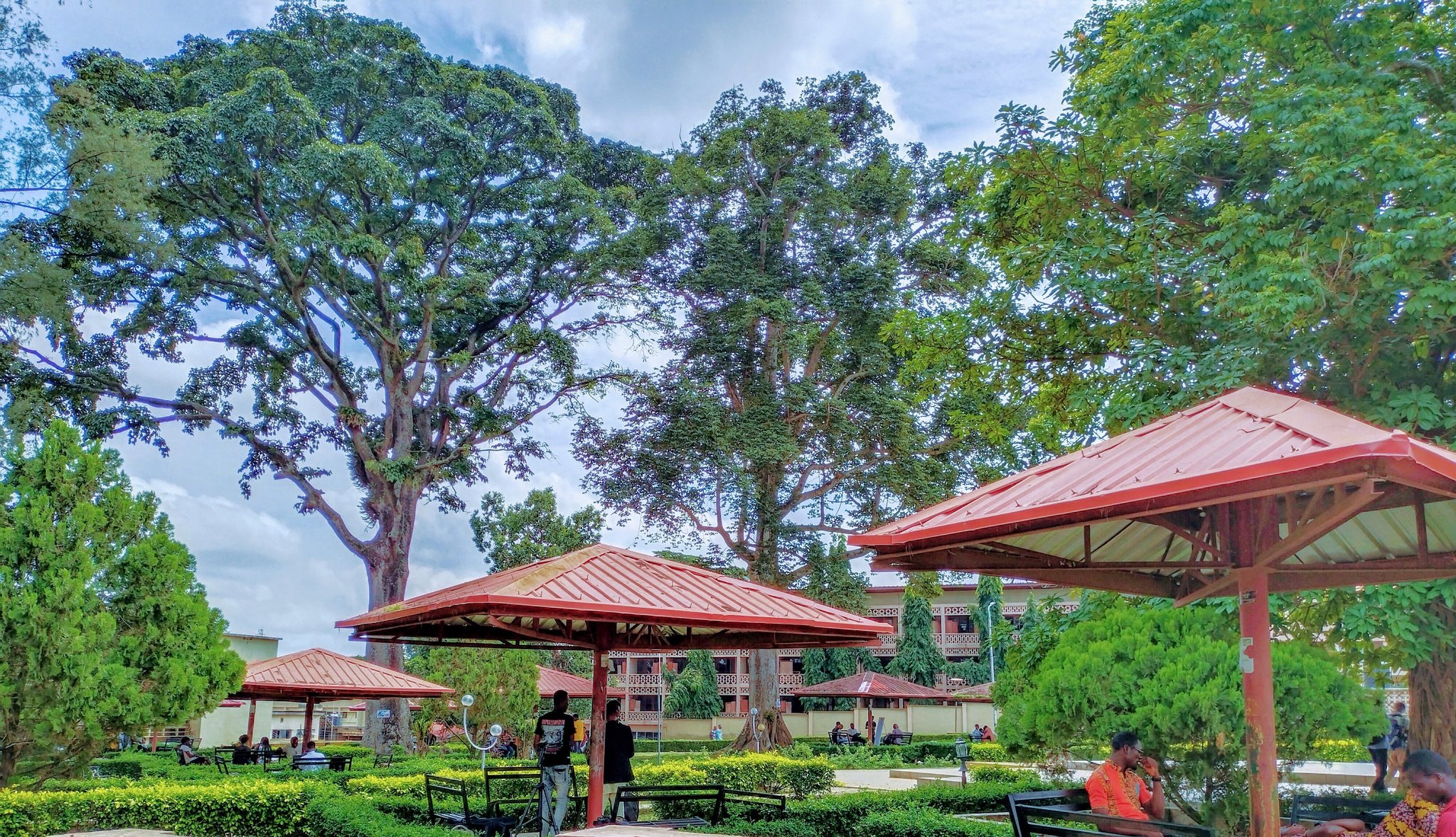Love gardens are cherished spaces within Nigerian university campuses, serving as hubs for social interaction or romantic rendezvous. These gardens play an essential role in building community and connections among students. They also provide a relaxed and scenic environment conducive to building relationships and strengthening bonds.
The term “love garden” itself is a reflection of Nigerian university culture. While some might take it literally as a designated space for romance to blossom, the meaning goes deeper. It signifies a place where students can forge meaningful connections, friendships that provide a strong support system during their academic journey. It is a space for lighthearted flirtation, playful interactions and the carefree camaraderie that defines student life.
The name also hints at the sense of belonging and affection students develop for these gardens. They become cherished sanctuaries, a refuge from academic pressures where students can simply be themselves and enjoy the company of their peers.
Evolution of love gardens
Love gardens trace their roots back to the organic formation of informal meeting spots on Nigerian university campuses, where students gathered for leisure and socialization. Over time, these spontaneous gatherings evolved into structured and organized spaces, often adorned with lush greenery, benches and aesthetic features to enhance the ambiance and allure of the gardens.
This is the essence of a love garden, a tranquil space where students can unwind after a long day of lectures, catch up with friends or simply soak in the serene atmosphere.
Impact on student life
Love gardens serve as vibrant social hubs. Students gather on benches beneath the dappled sunlight, sharing laughter and conversation.
Study groups also huddle together, seeking a peaceful environment to delve into their textbooks. The gentle hum of chatter and the occasional burst of laughter create a distinct energy, a sense of community that thrives outside the confines of classrooms.
Amidst the concrete jungle of university buildings and the relentless pursuit of academic goals, lover gardens offer a much-needed breath of fresh air.

Stepping into one is like entering a different world. The pressure of lectures and deadlines fades away, replaced by the rustling of leaves and the chirping of birds. Towering trees provide a cool, shaded haven, perfect for escaping the scorching Nigerian sun. Lush greenery carpets the ground, creating a space that feels refreshingly organic in contrast to the rigidity of academic life.
This verdant escape allows students to de-stress, recharge their batteries and return to their studies feeling rejuvenated.
Open-air concerts and poetry readings can be held amidst the greenery and add a touch of cultural enrichment to campus life. These events bring students together in a shared experience, a sense of school spirit and belonging.
Additionally, student organisations might utilise the space for club meetings or social gatherings, further strengthening the sense of community within the university. These gardens serve as focal points where cultural practices, traditions, and values are celebrated and preserved, acting as gathering spaces for events such as festivals, performances and ceremonies.
They also play a role in promoting traditional Nigerian values of hospitality, respect and interconnectedness, as students come together to share experiences, forge friendships, and support one another through both joyous and challenging times.
Love gardens have a profound impact on student well-being and mental health, offering a sanctuary from the academic rigours and stresses of university life.
Challenges and controversies
Love gardens encounter various challenges, notably maintenance issues stemming from inadequate funding and resources. Without proper upkeep, these spaces may deteriorate, compromising their appeal and functionality.
Overcrowding is another challenge faced by love gardens, especially during peak times, leading to congestion and a reduction in the quality of the social experience for students.
Controversies surrounding love gardens include debates on their appropriateness on campus.
Some argue that these spaces promote a culture of frivolity and distraction from academic pursuits, while others view them as integral to campus life, providing essential opportunities for relaxation and socialisation.
Additionally, there may be cultural or religious objections to the perceived intimacy and romantic associations of love gardens, sparking debates on their compatibility with certain values and beliefs.
Resolving these challenges and controversies requires careful consideration and collaboration among university administrators, students, and stakeholders to ensure that love gardens remain inclusive, accessible and conducive to positive social interactions while addressing concerns regarding maintenance, overcrowding and cultural sensitivities.
Popular Nigerian campuses with love gardens
- University of Ibadan
The University of Ibadan boasts the well-known Gamaliel Onasode Park, affectionately nicknamed “Love Garden” by students. This verdant haven serves as a cherished landmark on campus. Students flock to the park to relax under the shade of its mature trees, socialise with friends or simply enjoy a quiet moment amidst the greenery.
Whether catching up on studies or engaging in lighthearted flirtation, love garden embodies the spirit of social connection and carefree camaraderie that defines university life.
- The University of Nigeria, Nsukka
This prestigious institution boasts the Unity Park, a sprawling green space that serves as a popular hangout for students. With its manicured lawns and vibrant flora, Unity Park provides a welcome escape from academic pressures and fosters a strong sense of community life.
- Obafemi Awolowo University, Ile-Ife
Often referred to as “The Great Ife,” this university houses the picturesque garden renowned for its tranquil atmosphere. Students frequent it to unwind, engage in social gatherings, or simply appreciate the beauty of nature amidst their academic pursuits.
- University of Lagos
Nestled in the heart of Lagos, this university offers a serene love garden. This verdant space serves as a haven for students, providing a much-needed escape from the rigours of studies. Students gather in the park to relax, chat with friends, or participate in club meetings.











